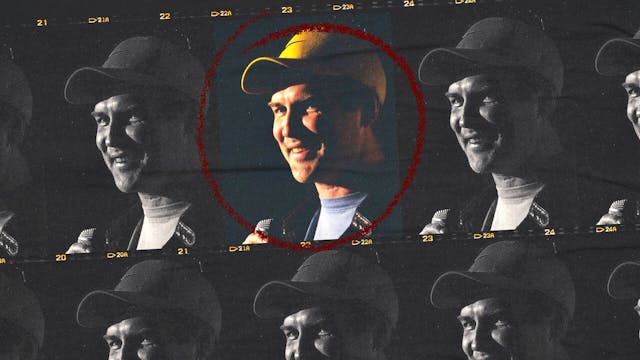Noah Brier | June 2, 2022
The Laugh Track Edition
On live shows, social pressure, and comedy
Recommended Products

Norm Macdonald's last comedy special, filmed in a small room with headphones on before going into surgery for cancer.
Noah here. At some point, probably when I was a teenager, I was in Manhattan with some friends and walked by the Ed Sullivan Theater where David Letterman’s Late Show was housed. As was pretty normal at the time, there was a guy outside hawking free tickets, and my friends and I took him up on the offer to attend that afternoon’s taping.
A few hours later, we got to our seats, and then something strange (to me at least) occurred: they started coaching us on how to laugh. We were told when to do it, what sound to make, and given plenty of opportunities to practice before the actual taping began. It was weird, but only in retrospect—when you’re in a room full of laughing people, it’s not hard to laugh along without feeling awkward.
Since then, I’ve been almost entirely incapable of watching any of the late-night talk shows. As soon as the audience laughs, it triggers something in me, and all I can concentrate on is the forced laughter.
Why is this interesting?
Two things made me remember this experience recently. First, my kids were watching a TV show with a laugh track (they mostly do the regular animated stuff plus Sesame Street-like stuff). I wouldn’t have noticed, except they were really cracking up—big unison belly laughs. Then, when I tuned into the cause, I heard the familiar laugh track: a touchstone of nearly every TV show I grew up with. The piped-in laughter was absolutely doing its job. It was helping the kids to understand what was funny and seemingly making the show more fun for them to watch.
The second thing that brought this memory back was listening to Marc Maron’s interview with Norm Macdonald from 2011. In it, Macdonald talks about the difference between being on a sitcom and being on Saturday Night Live (lightly edited for readability):
It is a very odd experience to be not funny in front of a crowd that is laughing hard at your fucking, not funny shit. Which is sitcoms. It's like you're in a fucking nightmare. You're like, what is going on here? That didn't fucking work ... That wasn't funny. And the audience just waits till you stop talking and then they laugh because they’re participants … They're doing their part. That's what I loved about Saturday Night Live. Things could bomb. Really only Saturday Night Live and early Letterman could you see people fucking bomb. And there's no other place on TV. Every other place, every joke works.
Not sure that’s still true for SNL, but it’s an interesting point nonetheless. In the end, the whole idea of a laugh track is pretty strange when you think about it. What started in radio, was eventually introduced to television in the 1950s by CBS sound engineer Charlie Douglass. “When Douglass first ‘invented’ the laugh track in 1950, it was intended to help the audience watch, understand and feel comfortable with a relatively new medium. TV comedies adopted canned laughter to ease their viewers into a new kind of entertainment, even for shows that were filmed without live audiences.”
In the last two decades, comedy has exploded. On one side you have shows like Arrested Development, The Office, and Curb Your Enthusiasm, which feel like they represent a new age of American television comedies—all laugh track free. While on the other you have the proliferation of comedy specials on every streaming service. Performed in front of a live audience, these shows obviously come with a laugh track, albeit one that wasn’t added in post-production. There is clearly something different about performing in front of a live audience—particularly, to Norm Macdonald’s point, one that might not laugh. (NRB)
Comedy Special of the Day
Going back to Norm, his last special was released this week on Netflix. He filmed “Nothing Special” in a small room, with headphones on, before going into surgery for cancer he had been battling for almost a decade. (NRB)
Quick Links:
Back in 2010, a guy brought one of (the?) only original “Laff” boxes from the original inventor Charlie Douglass to Antiques Roadshow. The video is fun. (NRB)
Indian Couple Sue Their Son for Not Giving Them a Grandchild (NRB)
Coronavirus hasn’t developed resistance to Paxlovid. How long can that last? (NRB)
—
WITI x McKinsey:
An ongoing partnership where we highlight interesting McKinsey research, writing, and data.
Using anxiety to your advantage. How can we reclaim our relationship with anxiety, so it works for us, not against us? A healthy outlook on anxiety means viewing it as a part of being human, not as a problem to solve, says Dr. Tracy Dennis-Tiwary in a new interview about how you can make anxiety your ally.
—
Thanks for reading,
Noah (NRB) & Colin (CJN)
—
Why is this interesting? is a daily email from Noah Brier & Colin Nagy (and friends!) about interesting things. If you’ve enjoyed this edition, please consider forwarding it to a friend. If you’re reading it for the first time, consider subscribing (it’s free!).
